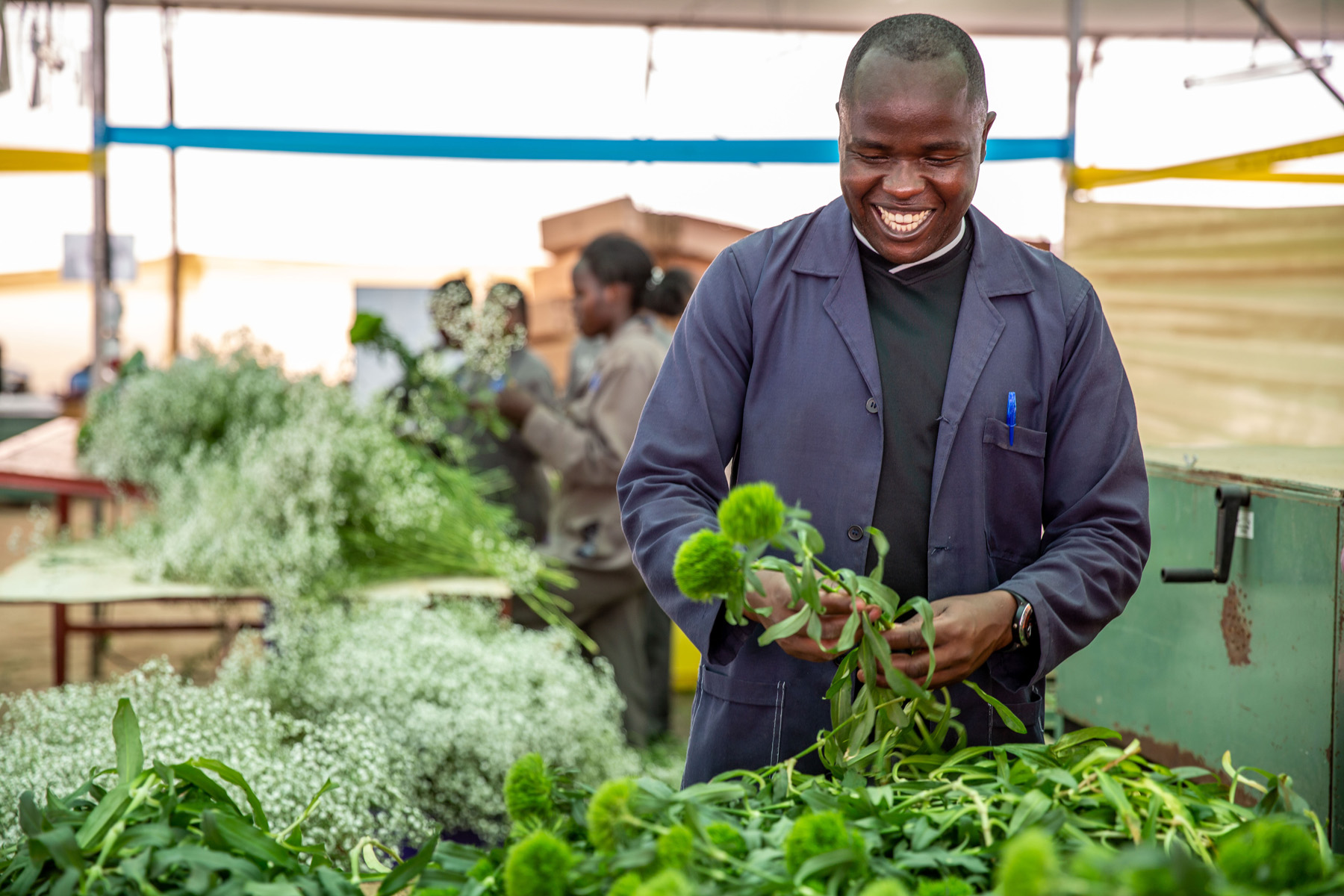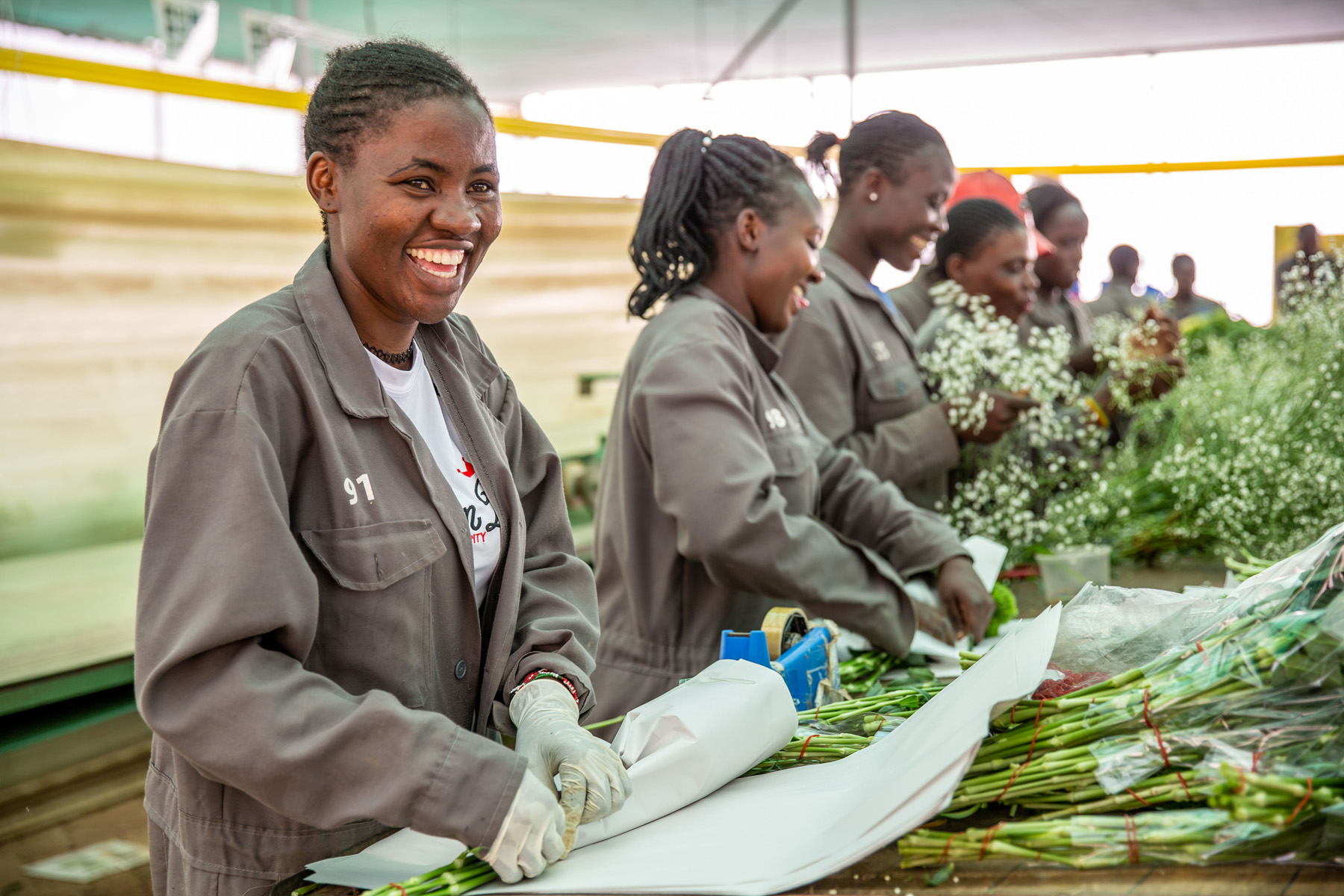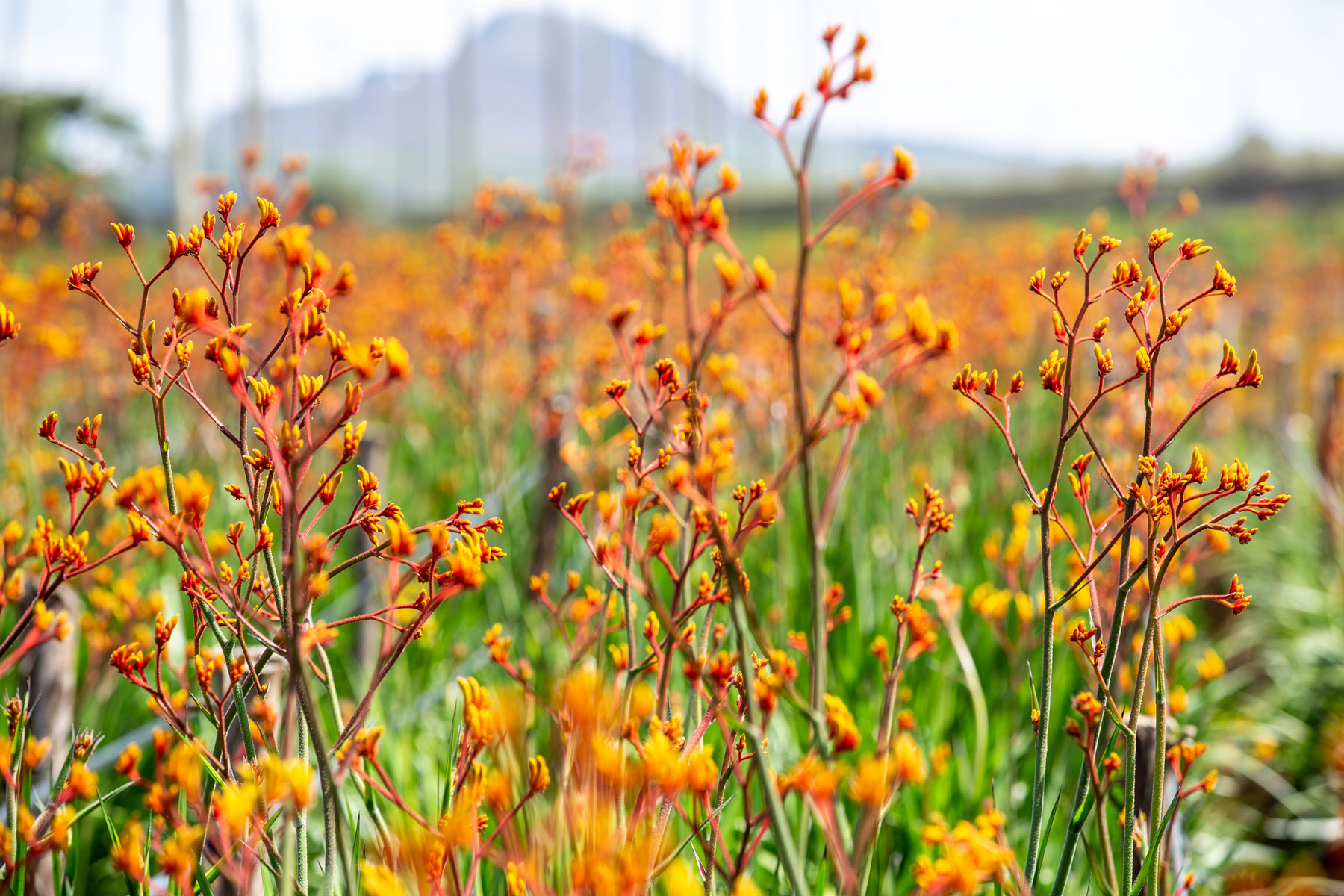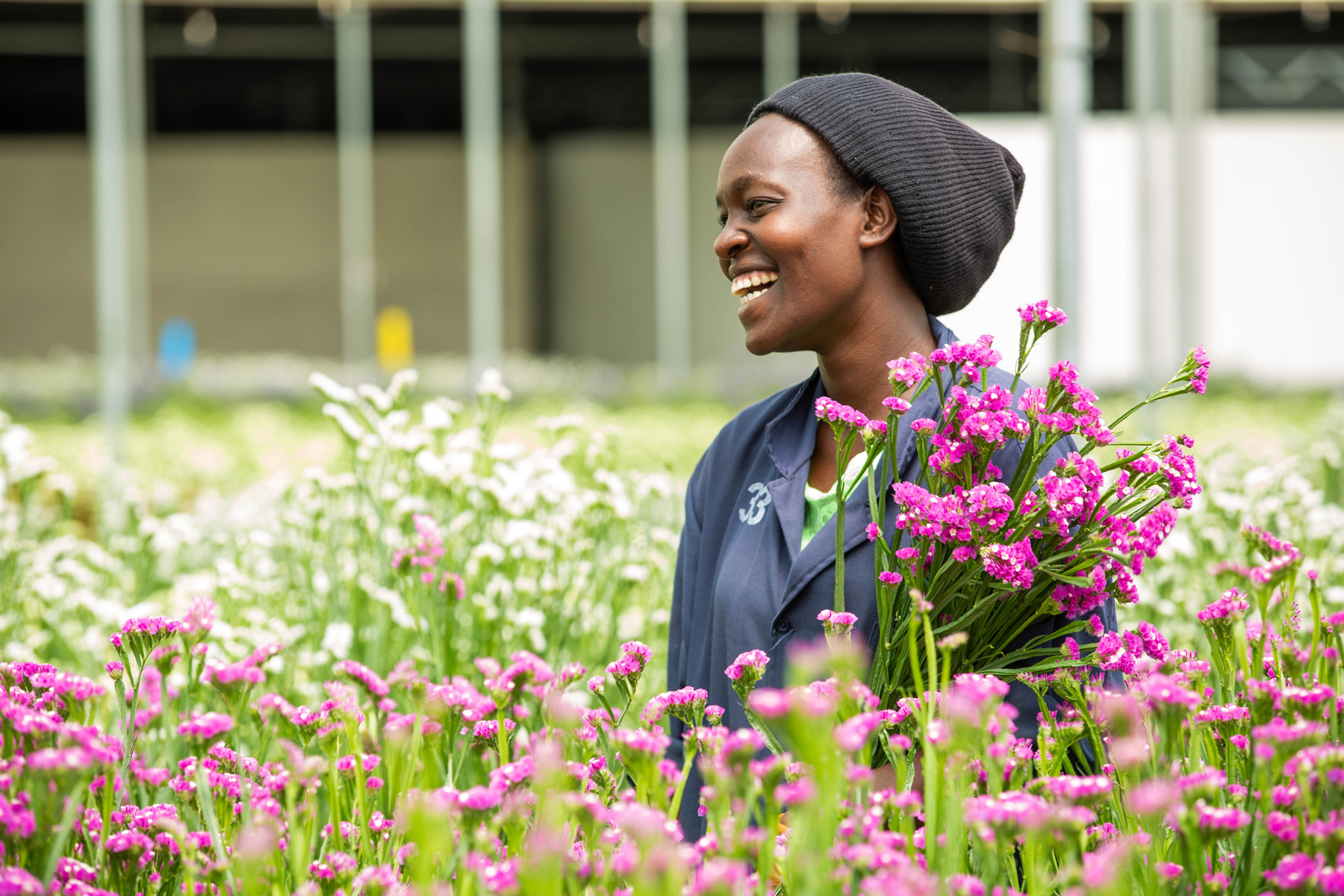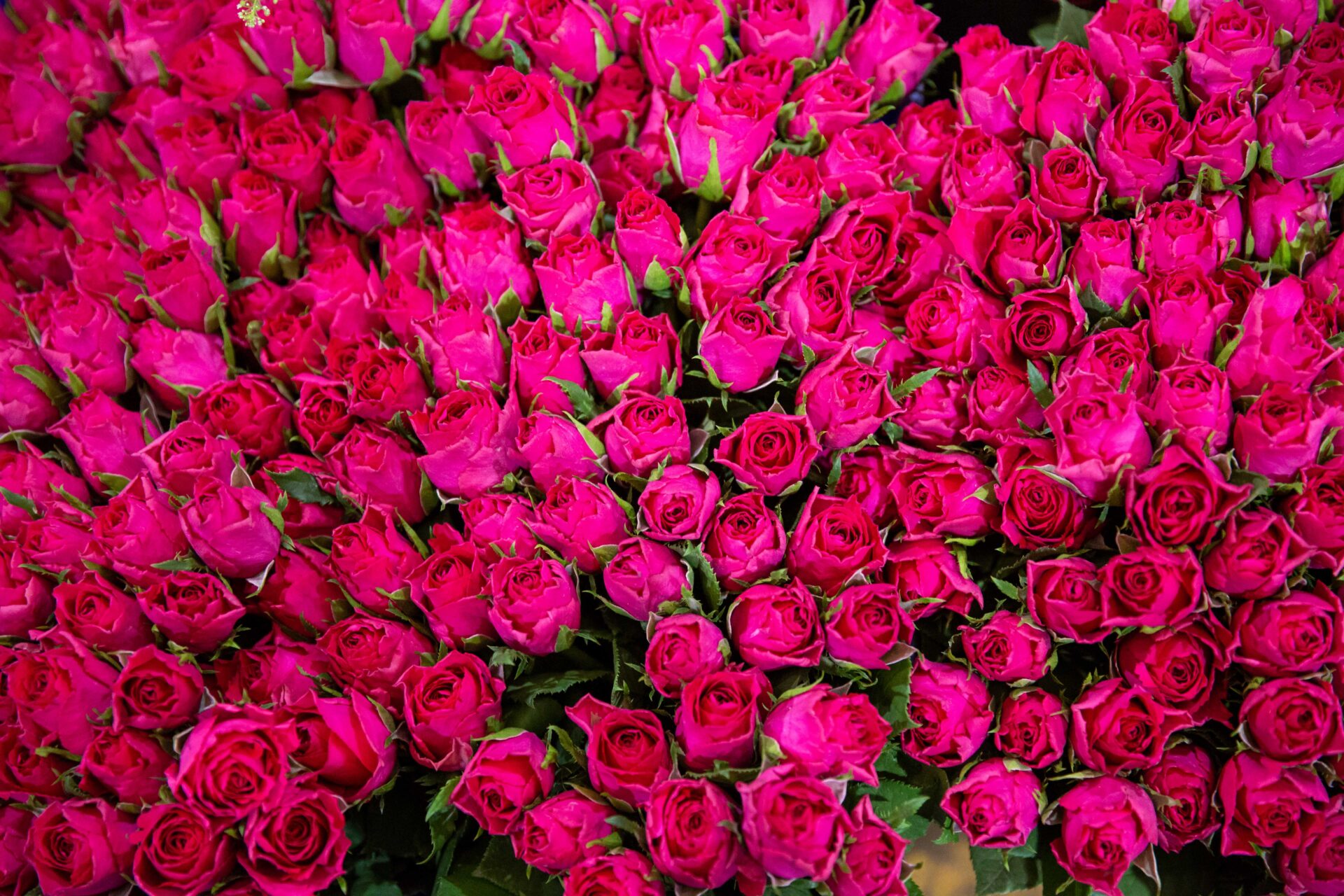Vermicomposting and sustainability
Vermicomposting and sustainability
Here at The Flower Hub we are always on the lookout for interesting projects that prioritise environmental stability and that demonstrate innovation in Kenya. We spoke to Meindert at Sosiani about the practice of Vermicomposting, and how it has helped them in their flower production.
Read MoreSosiani was founded in 2017, and Meindert immediately started vermicomposting on a small scale with a single bay to boost the fertility of the soil.
Vermicomposting is also known as worm composting. This is the natural process that worms do in the soils , but you give them more optimum conditions – they eat natural material, which they break down through digestion to create worm casts – also known as Black Gold. This natural fertiliser is incredibly beneficial for plants and microorganisms.
Vermicomposting
How many kilograms of worms did you start with?
We collected worms from around the farm and from our own composting programme, which we have since multiplied. We like this approach as the worms are adjusted to our environment and our surroundings before we get started.
How many beds do you have now and what is the total area?
We now have 12 beds and each bed contains an estimated 100-150,000 worms. We have potentially over 1.8M worms working for us.
What materials do you feed the worms?
We feed the worms cow and goat manure and food scraps from around the farm, we also collect and feed the used coffee grounds from a local café. Our worms seem to be very happy with how we feed them!
Approximately how long does it take for the material to be consumed?
The worms are fed once a week, and depending on the amount of material we have collected it is normally gone by the following feeding.
Worm farming requires investment in space, infrastructure and time, you obviously believe in its benefits, could you talk what you see the benefits are?
Worm castings are rich in hummus (organic matter) and are valuable for boosting the organic matter of the soil which our Alstroemeria grows in and also contribute an unknown but certainly valuable level of nutrients and micro nutrients to the soil. We use the worm tea as part of our fertiliser program and we irrigate with it alongside our other fertilisers.
Vermicomposting allows us to take waste materials from around the farm and local environment and rapidly turn it into worm castings and worm tea, both of which contribute to the overall health of the soil and healthy soil means healthier Alstroemeria.
